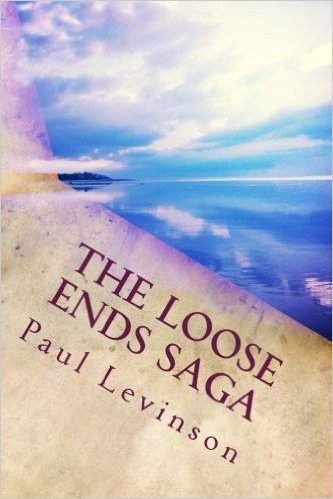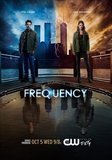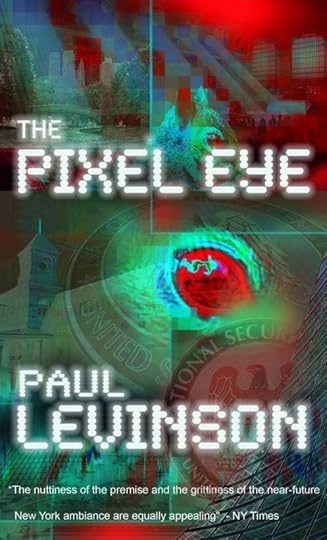Paul Levinson's Blog: Levinson at Large, page 241
October 18, 2016
Steve Schmidt Moved To Tears on the 11th Hour on MSNBC
I don't think I've ever seen anything quite as moving and profound from a Republican commentator on television.
I first became aware of Steve Schmidt when he was campaign manager for John McCain's unsuccessful 2008 Republican campaign the U.S. Presidency. I didn't much care for Schmidt or his candidate, and even less for Sarah Palin, who would have become Vice President had Schmidt succeeded in his campaign.
Perhaps Schmidt has grown wiser. It happens. Perhaps Schmidt correctly sees that as, dangerous and out-of-her mind as Sarah Palin was, Donald Trump is 10 times or whatever big multiplier worse.
Schimdt recounted on the 11th Hour with Brian Williams the dignity of FDR on the White House lawn after Pearl Harbor. He reminded us that Hitler didn't take power by force, but because democracy in Germany was weak.
Schmidt could barely contain himself, and neither could I. His voice and the tears in eyes conveyed the threat that Donald Trump poses to our democratic process. The obscenity of his election would trash what not only FDR but every American President has struggled to uphold and preserve: our democracy, and the respect upon which it is predicated, respect for the choice of the people as reflected in the votes they cast on Election Day.
One of the silver linings of Trump may the unity he has unintentionally brought forth among all Americans of rationality and good will, Republicans as well as Democrats.
I'm looking forward to seeing them work together together to build a better America, after the political illness that is Trump is defeated.
Paul Levinson's books ... Paul Levinson's music
I first became aware of Steve Schmidt when he was campaign manager for John McCain's unsuccessful 2008 Republican campaign the U.S. Presidency. I didn't much care for Schmidt or his candidate, and even less for Sarah Palin, who would have become Vice President had Schmidt succeeded in his campaign.
Perhaps Schmidt has grown wiser. It happens. Perhaps Schmidt correctly sees that as, dangerous and out-of-her mind as Sarah Palin was, Donald Trump is 10 times or whatever big multiplier worse.
Schimdt recounted on the 11th Hour with Brian Williams the dignity of FDR on the White House lawn after Pearl Harbor. He reminded us that Hitler didn't take power by force, but because democracy in Germany was weak.
Schmidt could barely contain himself, and neither could I. His voice and the tears in eyes conveyed the threat that Donald Trump poses to our democratic process. The obscenity of his election would trash what not only FDR but every American President has struggled to uphold and preserve: our democracy, and the respect upon which it is predicated, respect for the choice of the people as reflected in the votes they cast on Election Day.
One of the silver linings of Trump may the unity he has unintentionally brought forth among all Americans of rationality and good will, Republicans as well as Democrats.
I'm looking forward to seeing them work together together to build a better America, after the political illness that is Trump is defeated.
Talking about Trump's attempts to delegitimize election, Steve Schmidt quotes Churchill + warnings of fascisms rise. pic.twitter.com/Q5SKyak3nH
— Garrison66 (@Garrison66) October 19, 2016
Paul Levinson's books ... Paul Levinson's music
Published on October 18, 2016 20:54
October 17, 2016
Timeless 1.3: Judith Campbell
 Timeless 1.3 took an interesting turn tonight, bringing our team back to the time of JFK, but not to attempt to prevent his assassination.
Timeless 1.3 took an interesting turn tonight, bringing our team back to the time of JFK, but not to attempt to prevent his assassination.This is actually more than interesting - it's unusual for a time travel series whose first two episodes saw our heroes attempting to stop big-time historical disasters, the Hindenburg explosion and the Abraham Lincoln assassination. The team succeeds in the first, only to have the Hindenburg blow up anyway, a little later. And the team refrains from attempting to stop the killing of Lincoln, concentrating instead of keeping Ulysses S. Grant from also being killed, which would have had serious consequences for subsequent history.
So even when they're on the scene to stop big historical catastrophes, Lucy, Wyatt, and Rufus end up doing something slightly different. And this sets up the story for tonight's episode, in which they do something completely different from stopping a major disaster.
Indeed, it's so different, that it's not completely clear what exactly the team was trying to stop - not clear to the team, never clear to them, and tonight certainly not to the audience. And when we finally find out - at the very end - that the purpose of Flynn's mission was to get an atomic weapon to a place in the dessert in the future, we still don't know why.
But that's ok - actually, it's good to have an uneven, edgy pace in a time travel series - and the focus on Judith Campbell, likely JFK's mistress in our reality, definitely in the episode, was actually refreshing, in contrast to seeing another JFK assassination story. And the episode offered a significant note on the difficulty of changing the future from the past, with Wyatt's unsuccessful attempt to save his wife in the future by sending her a telegram from the past. Lucy's future changes when she doesn't want it to change. Wyatt's future stays the same when he tries to change it. What's the deeper significance that?
I'll be watching for more clues next week.
See also Timeless 1.1: Threading the Needle ... Timeless 1.2: Small Change, Big Payoffs

more time travel
Paul Levinson's books ... Paul Levinson's music
Published on October 17, 2016 22:05
October 16, 2016
Westworld 1.3: Julian Jaynes and Arnold
 An outstanding episode 1.3 tonight of Westworld, turning out to be one brilliantly philosophical ride of a series, as we would want a drama about artificial intelligence in android bodies to be.
An outstanding episode 1.3 tonight of Westworld, turning out to be one brilliantly philosophical ride of a series, as we would want a drama about artificial intelligence in android bodies to be.We learn from Dr. Ford that Arnold, who co-created the androids with Ford, thought that the creations could achieve true sentience via a bicameral mental process, in which the two halves of the mind worked together - one talking to the other - to attain human consciousness. This, as far as I know, is the first time this theory of Julian Jaynes - that our own human consciousness arose from bicameral minds - has ever been employed as a mechanism in a science fiction television series.
It's appeared in science fiction - including in one of my own novels, The Consciousness Plague - but not as an explanation for the design and emergence of artificial sentience. Jaynes was a real person, by the way, whose book The Origin of Consciousness in the Breakdown of Bicameral Mind caused something of a stir when it was first published in 1976. Jaynes argued that prior to the invention and adoption of the phonetic alphabet in the Middle East, human beings were not conscious in the way that we have been ever since and are today, but instead heard voices in their heads that told them what to do. Those voices are now known in our history as the voices of the Biblical prophets, and they survive today in schizophrenics.
We studied Jaynes in the Media Ecology PhD Program at New York University under Neil Postman. I once asked Marshall McLuhan what he thought of Jaynes and he said it was "science fiction" - another prophetic observation of McLuhan, who talked about the global village decades before the Internet and social media. I met Jaynes a few times - he was charming and erudite. But I thought his theory foundered in Far Eastern cultures, which are conscious the way we Westerners are, but never had a phonetic alphabet.
But that's no reason Jaynes' theory couldn't be brought into Westworld, which was really on a philosophic roll tonight, also invoking Karl Popper's notion that learning proceeds via mistakes, as Bernard muses about life and intelligence. Neither Jaynes nor Popper were mentioned by name, but the presence of their core concepts in Westworld makes it not just science fiction but philosophic fiction, an amalgam you don't get on the television screen every day.
Meanwhile, Dolores's story (very well played by Evan Rachel Wood) is progressing beautifully - in beautiful sorrow, apropos her name - and we see some monsters in the park, with unclear origins. Also, a host kills himself with a rock to the head - presumably to stop himself from hurting one of the programmers.
Westworld is a trip for the mind as well as the senses, and I'm all eyes and ears for more.
See also Westworld 1.1: Isaac Asimov and Philip K. Dick Served Up by Jonathan Nolan, Lisa Joy, and J. J. Abrams ... Westworld 1.2: Who Is the Man in Black?

more about Julian Jaynes Paul Levinson's books ... Paul Levinson's music
Published on October 16, 2016 22:44
October 13, 2016
Why Bob Dylan Deserved the Nobel Prize for Literature
With so much wrong and out of control in this world, it was a tonic indeed to learn that Bob Dylan is being awarded the Nobel Prize for Literature for his lifetime of song writing.
Who are the other great American songwriters in the past few hundred years? Stephen Foster wrote eternally beautiful songs, with haunting music and gossamer lyrics, in the 19th century. Cole Porter was an unsurpassed master of wordplay in the first half of the 20th century. Lennon & McCartney wrote a ton of incredibly catchy and some songs very profound of lyric and music a little later.
All of these songwriters occasionally reached heights that Bob Dylan attained over and over, many dozens of times, in the 1960s. His protest songs, like "Masters of War," are just peerless. His commentaries on the human condition, like "A Hard Rain's A-Gonna Fall," devastating and unforgettable. His love songs, like "Just Like A Woman," are right up there with the best of Romantic poetry - and for that matter, Shakespeare and the Greek poets, too. And Dylan did this, countless times.
Someone asked me today if Dylan really deserved the award, since songs aren't books, and thus not really a form of literature. But what is literature? Words put together to tell a story - or exactly what Dylan did with his words in his songs. And he molded those words, sculpted them and strung them together, mined their metaphoric depths and extended them to surprising, stunning, breathtaking places, in a way that only James Joyce in fiction, Marshall McLuhan in nonfiction, and few other soaring writers have done.
Dylan's songs would've been heard 10, 000 years from now, even without this Nobel Prize. But the Prize is a worthy recognition of this work.
Paul Levinson's books ... Paul Levinson's music
Who are the other great American songwriters in the past few hundred years? Stephen Foster wrote eternally beautiful songs, with haunting music and gossamer lyrics, in the 19th century. Cole Porter was an unsurpassed master of wordplay in the first half of the 20th century. Lennon & McCartney wrote a ton of incredibly catchy and some songs very profound of lyric and music a little later.
All of these songwriters occasionally reached heights that Bob Dylan attained over and over, many dozens of times, in the 1960s. His protest songs, like "Masters of War," are just peerless. His commentaries on the human condition, like "A Hard Rain's A-Gonna Fall," devastating and unforgettable. His love songs, like "Just Like A Woman," are right up there with the best of Romantic poetry - and for that matter, Shakespeare and the Greek poets, too. And Dylan did this, countless times.
Someone asked me today if Dylan really deserved the award, since songs aren't books, and thus not really a form of literature. But what is literature? Words put together to tell a story - or exactly what Dylan did with his words in his songs. And he molded those words, sculpted them and strung them together, mined their metaphoric depths and extended them to surprising, stunning, breathtaking places, in a way that only James Joyce in fiction, Marshall McLuhan in nonfiction, and few other soaring writers have done.
Dylan's songs would've been heard 10, 000 years from now, even without this Nobel Prize. But the Prize is a worthy recognition of this work.
Paul Levinson's books ... Paul Levinson's music
Published on October 13, 2016 19:16
October 12, 2016
Frequency 1.2: All About the Changes
 The question whenever a TV series is made out of a movie is whether the series can continue to tell a riveting story, or a story much longer than the movie. So far, as of its second episode on the CW tonight, Frequency is doing a very good job.
The question whenever a TV series is made out of a movie is whether the series can continue to tell a riveting story, or a story much longer than the movie. So far, as of its second episode on the CW tonight, Frequency is doing a very good job.The essential theme of the movie is how changing the past to prevent something bad can work, but with the price of making other things bad. In the first episode of the TV series, Raimy learns this lesson, twice. She saves her father but her mother dies. And, just for good measure, she loses her fiance in the bargain.
Tonight's episode serves us another unwanted consequence. Raimy's mere investigation of the serial killer who murdered her mother in the new reality results in him moving away and out of Raimy's radar in 2016. The specific way this happens is neat, and a good example of how little differences can lead to big changes in time travel. Frank, urged on by Raimy from the future, goes to the home of the likely serial killer. The very visit sets in motion a series of events that get him to leave, which in turn leaves Raimy with no suspect at hand in the future.
And the lesson brings home to Raimy something she already knew: that anything she does to change the past to improve the future could also make things worse in the future, too. This puts Raimy in a difficult situation which makes for an appealing narrative: she has to weigh every single change she contemplates. Grasping completely the contradictory indications of any change in time, because she remembers all the original and changed timelines, makes Raimy (well played by Peyton List) the perfect time-traveled character - and she's not even traveling, just sending information from the future to her father in the past.
At this point, it's clear that the consequences of what Raimy is doing, and for that matter her actions in every episode, are unpredictable - or exactly what we want to see on television.
See also Frequency 1.1: Closely Spun Gem

more time travel Paul Levinson's books ... Paul Levinson's music
Published on October 12, 2016 23:51
Designated Survivor 1.4: "Michigan's on the Verge of Anarchy"
 That's what President Kirkman says in Designated Survivor 1.4 - "Michigan's on the verge of anarchy" - and with that woman at the Pence rally yesterday calling for revolution if Trump doesn't win, does this powerful drama have relevance to what's actually going on in our country today, or what?
That's what President Kirkman says in Designated Survivor 1.4 - "Michigan's on the verge of anarchy" - and with that woman at the Pence rally yesterday calling for revolution if Trump doesn't win, does this powerful drama have relevance to what's actually going on in our country today, or what?But it's a drama, not reality, so Kirkman and the fictional America in which he's Presidents face far worse problems, including a second resurrection, on the part of his trigger-happy General.
Kirkman, expertly played by Kiefer Sutherland, defuses both situations. He fires the general, and lures the errant, fascist Michigan Governor to Washington, where Kirkman arrests him. Very satisfying.
The whole series is excellent, my favorite of so far of the new television season. It has the fast pace, surprises, and fast change of characters of 24. Indeed, I realized tonight that Designated Survivor takes place after an episode of 24 which never existed, in which Jack Bauer somehow just can't stop the terrorist catastrophe. Designated Survivor has all the political intrigue and innuendo of 24, but taking place after the U. S. government is all but destroyed. And yeah, who better than the man who played Jack to play the new President.
In our reality, 24 was set to debut when 9/11 intervened. It was delayed, and its ending was retooled to make it more in jagged accord with our post 9/11 reality. Jack's wife didn't survive that last episode of that kick-in-the-stomach first season of 24.
There was always a sense that all bets were off with 24, and the same raw narrative energy courses through Designed Survivor. It won't be on next Wednesday, because of the third Presidential debate, but who knows if that will take place, and I'm looking forward to Designated Survivor returning in any case.
See also Designated Survivor: Jack Bauer Back in the White House ... Designated Survivor 1.2: Unflinching and Excellent

terrorist squirrels and bombs in NYC
#SFWApro
Paul Levinson's books ... Paul Levinson's music
Published on October 12, 2016 22:18
WikiLeaks As A Threat to Democracy
The current release via WikiLeaks of private emails from John Podesta, Chair of the 2016 Hillary Clinton presidential campaign, occasions another look at the difference between what Daniel Ellsberg and Edward Snowden did - which I supported and applauded - and what Wikileaks is doing now, which I strongly oppose and condemn.
Here's why -
Ellsberg and Snowden are Americans, who released classified information about what our government was doing, information which both men had legal access to. They of course violated the law, and the terms of their employment, by releasing this information, and we can debate whether these violations were warranted by the benefits of the releases to America and by extension the world. In my view, and the view of many others, Ellsberg strengthened our democracy by his actions, by showing the deception on which our instigation of the Vietnam War was based. The benefits of Snowden's release of classified information are less clear, but I'd argue that they still fall on the side of benefitting our democracy, by providing inside information on how we conduct our foreign policy.
But note that in neither case was a break-in involved into someone's private property. Both men had legal access to the information they released. In contrast, the Podesta emails were obtained through hacking, or theft of Podesta's private property. That makes the current Wikileaks release more akin to Nixon's Watergate break-in, than to what Ellsberg did with the Pentagon Papers.
Indeed, just as Watergate was intended to influence the Presidential election of 1972 - get Nixon re-elected - that's exactly what the Wikileaks release is now trying to do with our 2016 election. The release of this information does not provide Americans with information about how our government operates, but rather about how people running campaigns talk about the campaigns. I think Americans are entitled to know about how our government operates, in whatever ways that information is obtained. In contrast, it's certainly interesting to see the inner workings of campaigns, but not via the mechanism of criminally hacking, and not when the hacking is designed not just to inform, but to damage a particular candidate.
And I haven't even addressed the likelihood - near certainty, actually - that the Russians were the ones who did the hacking. If that's the case, then we have an aggressive foreign power attempting to tip the scales of our Presidential election.
But Wikileaks, whether the Russians are behind this or not, has moved from being a force for democracy to a danger to its existence, via their attempt to tamper with our election.
See also The Downfall of Julian Assange Paul Levinson's books ... Paul Levinson's music
Here's why -
Ellsberg and Snowden are Americans, who released classified information about what our government was doing, information which both men had legal access to. They of course violated the law, and the terms of their employment, by releasing this information, and we can debate whether these violations were warranted by the benefits of the releases to America and by extension the world. In my view, and the view of many others, Ellsberg strengthened our democracy by his actions, by showing the deception on which our instigation of the Vietnam War was based. The benefits of Snowden's release of classified information are less clear, but I'd argue that they still fall on the side of benefitting our democracy, by providing inside information on how we conduct our foreign policy.
But note that in neither case was a break-in involved into someone's private property. Both men had legal access to the information they released. In contrast, the Podesta emails were obtained through hacking, or theft of Podesta's private property. That makes the current Wikileaks release more akin to Nixon's Watergate break-in, than to what Ellsberg did with the Pentagon Papers.
Indeed, just as Watergate was intended to influence the Presidential election of 1972 - get Nixon re-elected - that's exactly what the Wikileaks release is now trying to do with our 2016 election. The release of this information does not provide Americans with information about how our government operates, but rather about how people running campaigns talk about the campaigns. I think Americans are entitled to know about how our government operates, in whatever ways that information is obtained. In contrast, it's certainly interesting to see the inner workings of campaigns, but not via the mechanism of criminally hacking, and not when the hacking is designed not just to inform, but to damage a particular candidate.
And I haven't even addressed the likelihood - near certainty, actually - that the Russians were the ones who did the hacking. If that's the case, then we have an aggressive foreign power attempting to tip the scales of our Presidential election.
But Wikileaks, whether the Russians are behind this or not, has moved from being a force for democracy to a danger to its existence, via their attempt to tamper with our election.
See also The Downfall of Julian Assange Paul Levinson's books ... Paul Levinson's music
Published on October 12, 2016 12:51
October 10, 2016
Timeless 1.2: Small Change, Big Payoffs
 Time-travel stories in which infamous events of the past are the targets of change - such as assassinations that the time-travelers don't want to happen - have an especially tough row to hoe. If the event is indeed changed, what will the new future world be, and how will the time-travelers fit back into it. If the event is not changed, how can the story avoid an ending of futile frustration?
Time-travel stories in which infamous events of the past are the targets of change - such as assassinations that the time-travelers don't want to happen - have an especially tough row to hoe. If the event is indeed changed, what will the new future world be, and how will the time-travelers fit back into it. If the event is not changed, how can the story avoid an ending of futile frustration?Timeless has so far come up with a pretty good solution. Bad events as we know them - last week the Hindenburg disaster, tonight the Lincoln assassination - are just slightly changed. They're not stopped, but the surrounding circumstances of the event are slightly changed - because, in both cases, so far, the time-travelers are in action on the scene.
The result is that the world in the future - our world, as we know it - stays the same as far as major events. But little parts of it change, specifically the family and now the love-life of one of our major characters, Lucy. At least, so far.
Fortunately for Lucy, we the audience, and the narrative, there's a character at time-travel central who's able to map out for Lucy exactly why the little changes in the past led to the big changes in her life. This gives Lucy and us a better idea of what's going on.
But still unclear is the villain's agenda, and why he - Flynn - is so bent on making catastrophes of the past even worse. I suspect, am hoping, that the reason has some personal connection to Lucy, known or unknown by Flynn, because that will an add even bigger dollop of tension to the contrary forces that are pushing her to change history, presumably for the better, but with who knows what effect on her personal life, and leaving the past as it was and she knows it and her life in the future to be.
A nice kettle of fast-moving, subtly visible fish in which to situate time-travel stories.

more time travel Paul Levinson's books ... Paul Levinson's music
Published on October 10, 2016 23:02
Hillary Clinton, Erving Goffman, and Josh Meyrowitz
Hillary Clinton has been receiving much criticism from Donald Trump and know-nothing Republicans about her statement, released in a recent round of Wikileaks, that she says different things, takes different positions, in her public and private remarks.
I say "know nothing" quite deliberately, because anyone who has any knowledge of sociology would know about Erving Goffman's Presentation of the Self in Everyday Life, published way back in 1959, and its revelation that all human beings have public and private personas, which often are in disagreement with one another. A waiter smiles at a difficult diner, takes the order, then curses him out when he places the order with the cook behind the counter. This is human nature - and, in the case of the waiter and everyone else, it doesn't prevent the waiter from doing his job, or even get in the way of that. To the contrary, it enables the waiter to be professional in his public sphere and do a better job.
In 1985, my friend and fellow Media Ecology New York University PhD graduate Josh Meyrowitz applied Goffman's analysis to politics in No Sense of Place, and demonstrated how front and back regions are the lifeblood of all successful politicians and leaders. Again, human beings require the private space to think out and explicate their positions to themselves and their families and closest advisors, before bringing them out to the public.
This is what Hillary was referring to when she cited Lincoln's differing public and private positions when he was working to get the 13th Amendment and its abolition of slavery through Congress. We already know that Hillary was familiar with media theorist Marshall McLuhan - see Gail Sheehy's 1999 Hillary's Choice and my own McLuhan in an Age of Social Media - and the timing would certainly have been right for her to have encountered Goffman's book in her Wellesley classes.
As in every other issue in this campaign, we have a choice between a knowledgable, serious thinker in Hillary Clinton verses an ignorant, lying bully in Donald Trump. Paul Levinson's books ... Paul Levinson's music
I say "know nothing" quite deliberately, because anyone who has any knowledge of sociology would know about Erving Goffman's Presentation of the Self in Everyday Life, published way back in 1959, and its revelation that all human beings have public and private personas, which often are in disagreement with one another. A waiter smiles at a difficult diner, takes the order, then curses him out when he places the order with the cook behind the counter. This is human nature - and, in the case of the waiter and everyone else, it doesn't prevent the waiter from doing his job, or even get in the way of that. To the contrary, it enables the waiter to be professional in his public sphere and do a better job.
In 1985, my friend and fellow Media Ecology New York University PhD graduate Josh Meyrowitz applied Goffman's analysis to politics in No Sense of Place, and demonstrated how front and back regions are the lifeblood of all successful politicians and leaders. Again, human beings require the private space to think out and explicate their positions to themselves and their families and closest advisors, before bringing them out to the public.
This is what Hillary was referring to when she cited Lincoln's differing public and private positions when he was working to get the 13th Amendment and its abolition of slavery through Congress. We already know that Hillary was familiar with media theorist Marshall McLuhan - see Gail Sheehy's 1999 Hillary's Choice and my own McLuhan in an Age of Social Media - and the timing would certainly have been right for her to have encountered Goffman's book in her Wellesley classes.
As in every other issue in this campaign, we have a choice between a knowledgable, serious thinker in Hillary Clinton verses an ignorant, lying bully in Donald Trump. Paul Levinson's books ... Paul Levinson's music
Published on October 10, 2016 14:23
Westworld 1.2: Who Is the Man in Black?
 As the second Presidential debate played out across lots of television tonight, the second episode of Westworld proceeded on HB0. Actually, it's been available On Demand for about a week - as our own world becomes ever more like Westworld in our ability to control our fiction - but I just saw it in the past hour.
As the second Presidential debate played out across lots of television tonight, the second episode of Westworld proceeded on HB0. Actually, it's been available On Demand for about a week - as our own world becomes ever more like Westworld in our ability to control our fiction - but I just saw it in the past hour.And it was an excellent hour, which furthered and honed a question which arose in the first episode last week: who is the Man in Black?
Only guests are supposed to survive deadly attacks from the android hosts, and the Man in Black is able to dish it out - kill posses and other congregations of bad guys, not to mention innocents who serve his goals - but he seems invulnerable to any shots that come his way, i.e., go right into him. So that would make him a guest, right?
But he seems to be something more, or maybe other than a guest, would be a better description. He's being watched by the technicians in Westworld, and they usually seem to focus more on the hosts than the guests. And he talks about how long he's been pursuing his goals in Westworld, which raises the question, if he's a guest, can a guest stay in Westworld for decades like the Man in Black?
So to the extent that all of that throws a little doubt on whether he's guest, that shifts the pendulum back to his being a host, albeit a special kind of host who's invincible to other host bullets, and we're left with a choice of the Man in Black being either an unconventional host (invulnerable) or an unconventional guest (can stay in the amusement park for decades).
I've seen some wild theories batted about online about the Man in Black's identity (well played, by the way, by Ed Harris). My favorite is that he's really the Gunslinger from the 1973 movie, played by Yule Brenner. There is a resemblance, but that would mean he's been in the park, well ... do we know if there's any connection between the movie and the TV series, which could tell us if the series is taking place x number of years after the story in the movie?
Nah, I don't think the movie and TV series are connected in that way. But even so, Westworld the series is continuing to raise provocative questions, and well on its way to being another winner for HBO.
See also Westworld 1.1: Isaac Asimov and Philip K. Dick Served Up by Jonathan Nolan, Lisa Joy, and J. J. Abrams

#SFWApro
Paul Levinson's books ... Paul Levinson's music
Published on October 10, 2016 00:58
Levinson at Large
At present, I'll be automatically porting over blog posts from my main blog, Paul Levinson's Infinite Regress. These consist of literate (I hope) reviews of mostly television, with some reviews of mov
At present, I'll be automatically porting over blog posts from my main blog, Paul Levinson's Infinite Regress. These consist of literate (I hope) reviews of mostly television, with some reviews of movies, books, music, and discussions of politics and world events mixed in. You'll also find links to my Light On Light Through podcast.
...more
- Paul Levinson's profile
- 342 followers



